Effective Podcast Promotion Strategies: Tips to grow your audience
When it comes to promoting your podcast, it's important to focus on both the short-term and long-term strategies.
While the first week is crucial for building initial momentum and awareness, developing long-term promotion strategies is equally important to continually attract new listeners and grow your audience.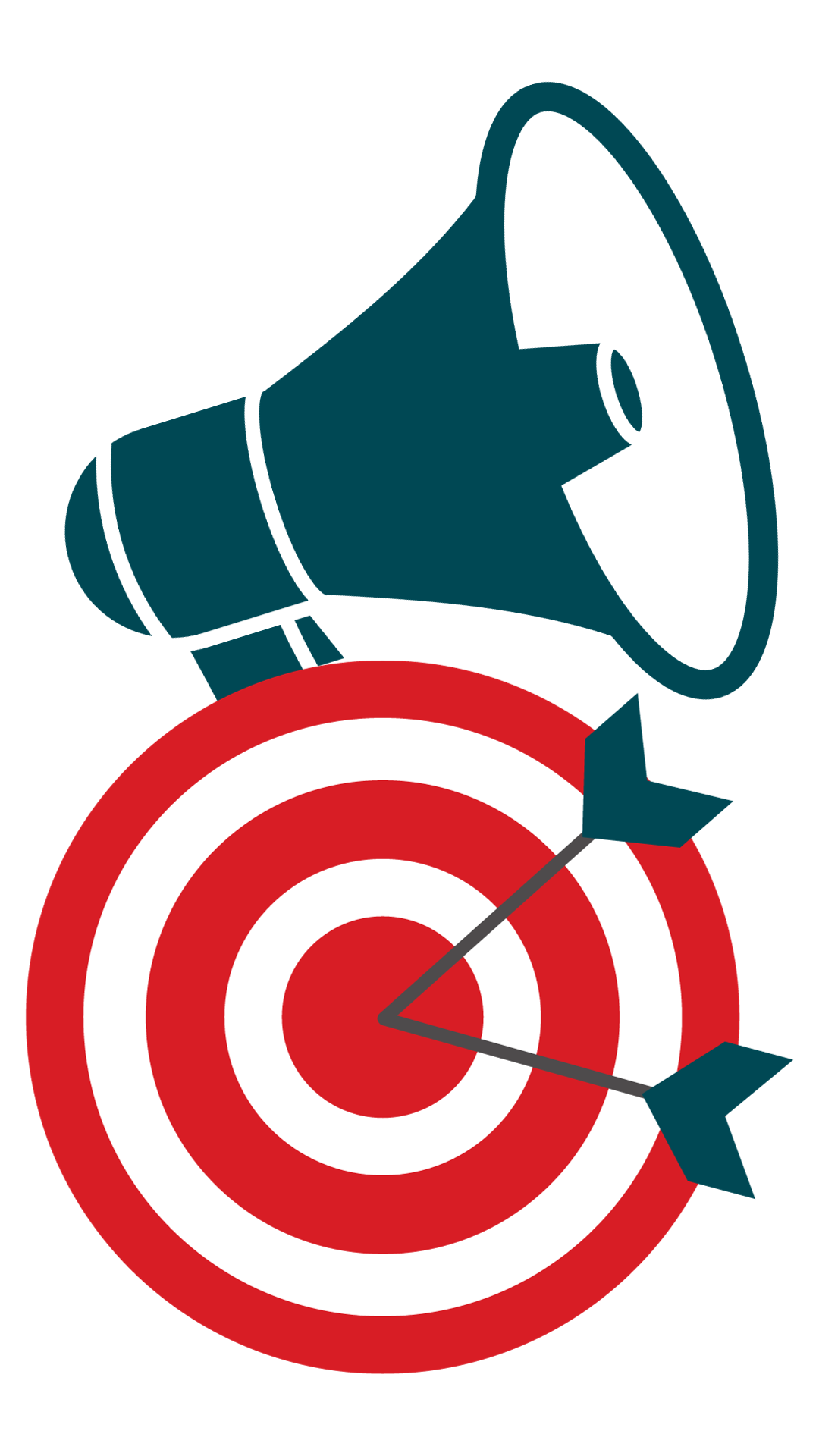
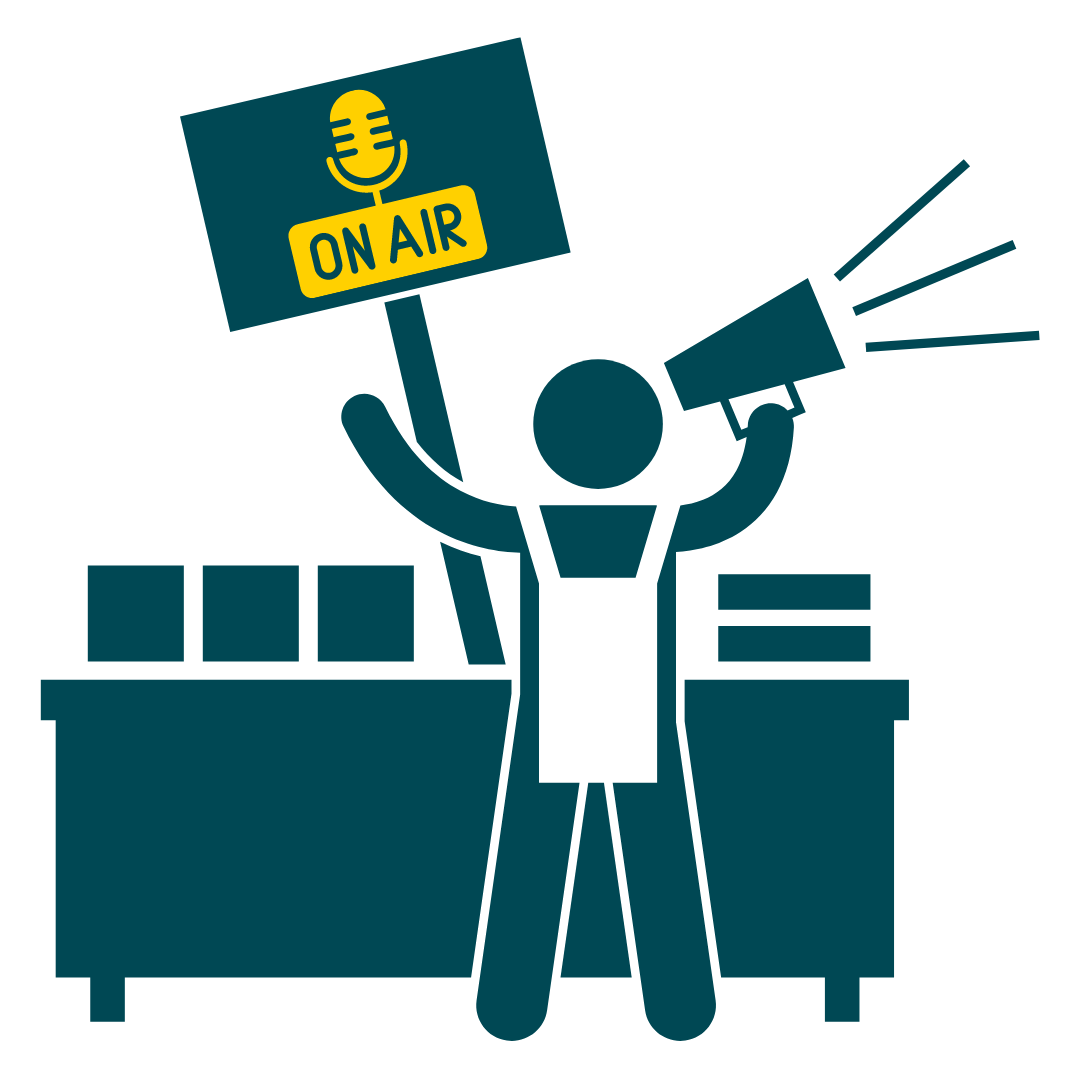
Focusing on short and long-term promotion can significantly help you in finding new listeners. And while it's tempting to focus only on creating content, if you want to grow, it's crucial to think ahead and have a plan in place–especially if your podcast is part of your brand or business.
However, if you're a solo podcaster and don't currently have the time or resources to implement a marketing strategy, don't let that stop you from your launch. You don't need to do everything at once, and you can always build your promotional strategy as you go (if you have a branded or company podcast with an existing audience, making an initial splash will likely be a little easier.)
First things first: Create a podcast website
In order to effectively reach your target audience and grow your listenership, you need to have a website for your podcast launch. This will serve as an online home for your podcast where potential listeners can learn more about your show and easily access your episodes.
Other benefits of having a podcast website are:
- it creates a centralized location where listeners can easily find information about your podcast
- it gives you an opportunity to build anticipation and excitement for your upcoming podcast
- it allows you to gather email addresses of interested listeners for future podcast marketing efforts
- it provides a platform to showcase guest appearances, reviews, and other social proof to increase credibility
- it can help improve your search engine rankings as it serves as a hub for all your podcast content
If you host your podcast with Podigee, you can set up your landing page from your dashboard. We also like services like Podpage. So what exactly should you page include? Let's take a look.
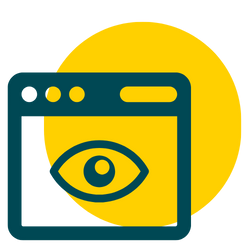
All your episodes + show notes
Having an archive of old episodes on your website is great for several reasons. First, it allows listeners to find and listen to past episodes without having to search on different platforms. From an SEO perspective, having episodes on your site can also help it rank higher in search results.
Another good idea for SEO: include your show notes for each episode. For added benefit, and to make your content more accessible, you can even include episode transcripts or blog posts of your content.
.png)
Links to major listening platforms
When potential listeners come to your page, they should be able to easily subscribe to your podcast on different platforms–it's often enough to place buttons for Google Podcasts, Apple Podcasts, and Spotify. Just make sure they're easy to find!
.png)
Value-driven messaging tailored to your ideal audience
Write the content of your site clearly enough that someone who has never heard of you can easily understand what your content is about in the first few seconds of being on the page. Use big, bold headlines and language that tailors to the needs and desires of your target listener.
.png)
Clearly stated benefit and value
In the same vein, be clear about who your podcast is for. Why should people listen? What is your unique angle? Including this content on your page is part of your messaging and branding and, essentially, your show's personality.
.png)
Feedback and reviews
Featuring user reviews provides valuable feedback to improve your content and also serves as social proof for potential listeners. When others see positive reviews from real people, it builds trust and credibility in your brand.
If you don't have any listeners yet that you can ask to provide you with a review, you can always share your content with a friend or family member and add listener reviews as you get them on Apple Podcasts.
.png)
Links, Links, Links
Do you have a social media account or a YouTube channel, TikTok, or some other platform where you produce content related to your podcast? Be sure to link it on your site so people can find you!
3 Pre-launch marketing tips
Unless you already have a large audinece, most podcasters will need some help getting the word out about their show. Let's go over some ways you can get more listeners.
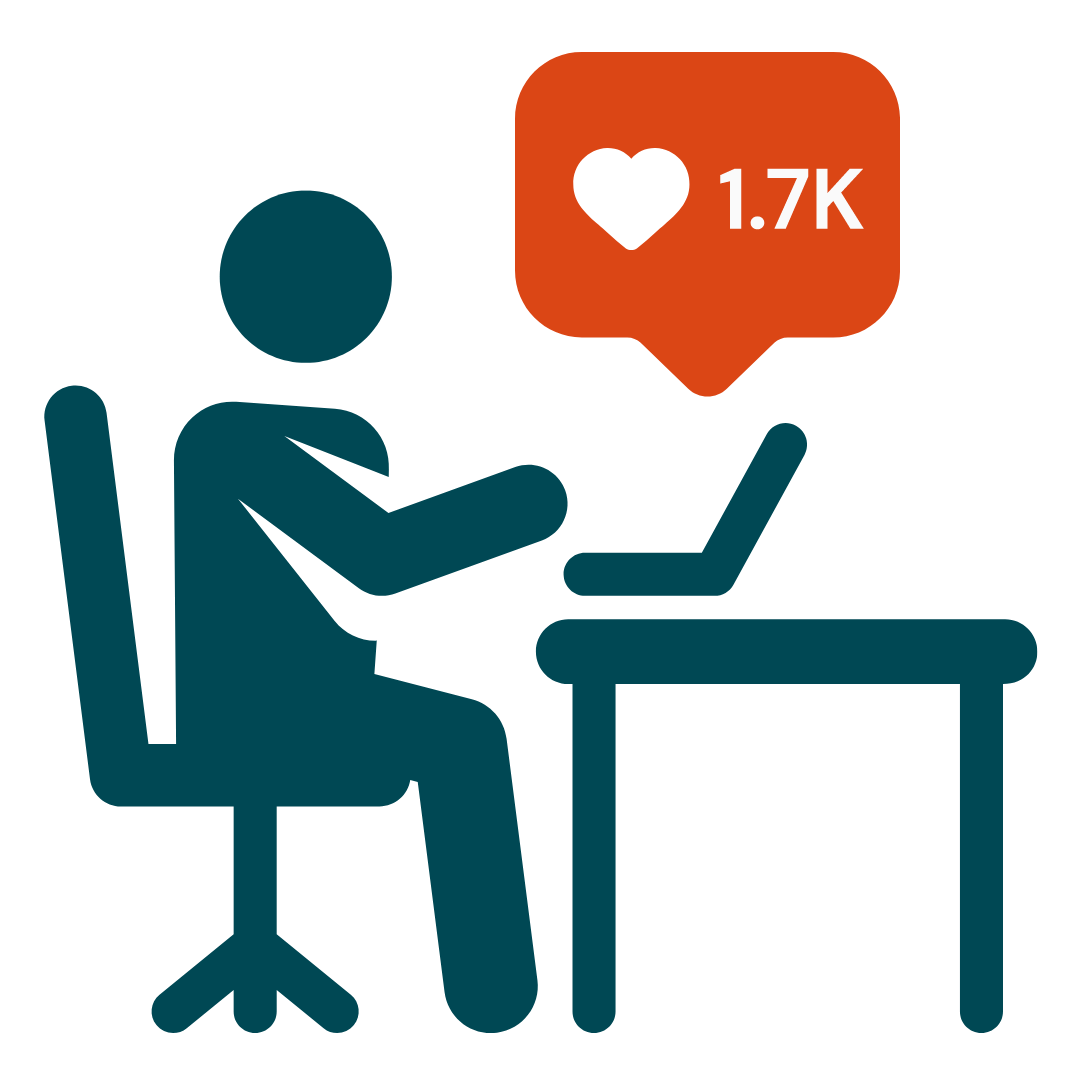
#1. Tap into your personal network
Asking people to share your podcast with their following is a great way to attract listeners. Think of these people as "multipliers" who can substantially help you expand your reach. Here are some people you can potentially reach out to:
- Customers with whom you have good relationships
- Network partners with access to the same target group (excluding competitors)
- Associations, clubs, and interest groups
- If your podcast is of interest to the general public, you can include municipal authorities (administration, marketing officials), local governments, and state governments (for topics related to local tourism and the like)
- People who’ve agreed to be interviewed on your podcast
- Employees of your company to serve as brand ambassadors
- Friends and family
Pro tip: Send pre-formulated texts and the most important links to your multipliers so they can share them with less effort.
#2. Leverage established marketing channels
If you already have established marketing channels, leverage them for all they're worth. These could includes things like:
- An email newsletter
- Social media channels
- Informational materials for established customers
- PR campaigns
- A mention in the menu, side bar, or at least the footer menu of your website
- Flyers at events with a QR code linking to the podcast
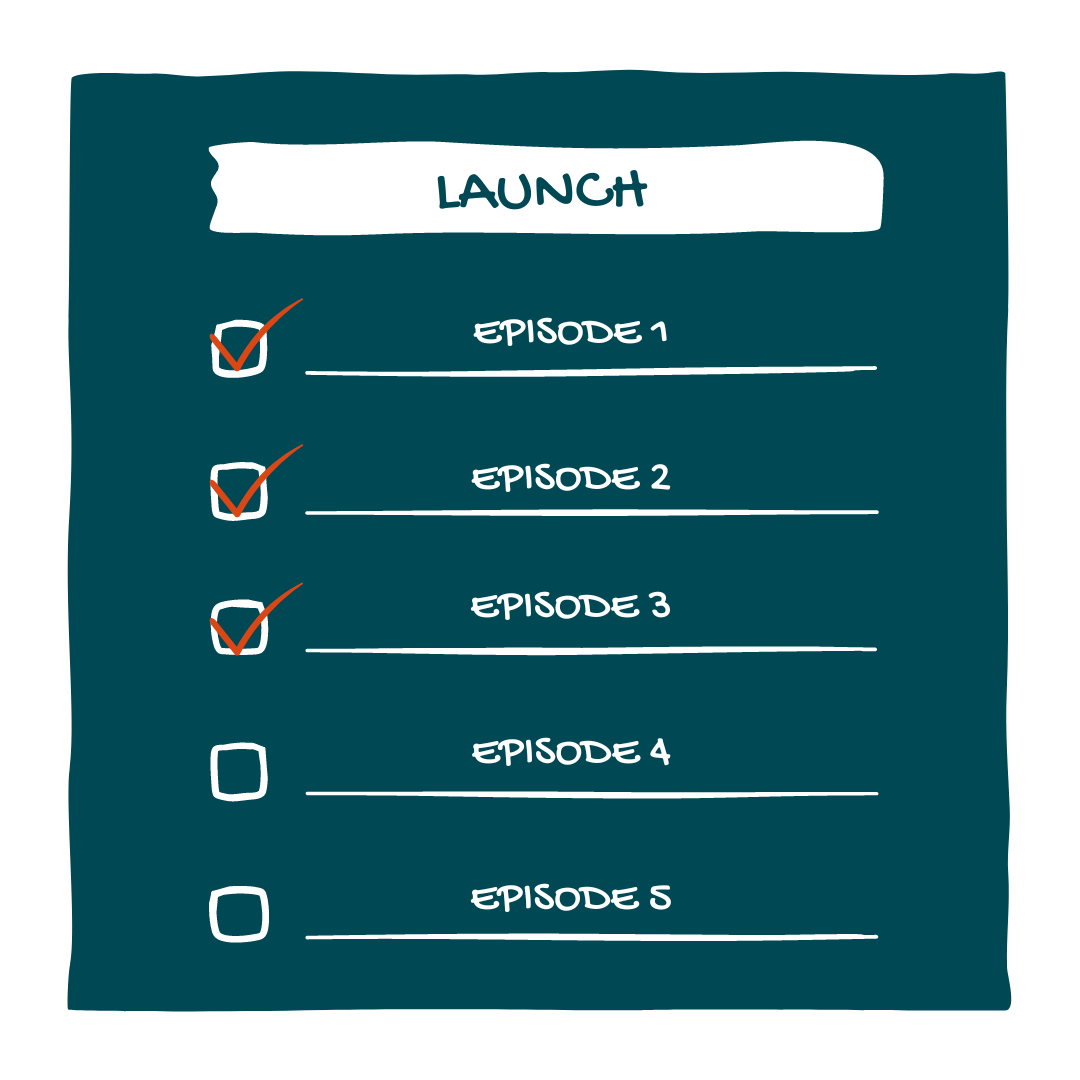
#3. Launch with 3-4 episodes
Launching with 3-4 pre-published episodes allows you to not only showcase your content but also helps create a buzz around your show and attract more listeners from the start. Plus, having multiple episodes gives listeners an opportunity to binge-listen and get hooked on your content, making them more likely to subscribe and tune in for future episodes.
If you take even some of these suggestions in the first week of your podcast, you'll be off to a good start and have made more progress than many other beginning podcasters!
5 Post-launch podcast marketing strategies
Once you've launched, the real strategy begins. Let's break down the 5 best post-launch marketing strategies to help you get more listeners (and nurture the ones you have)!

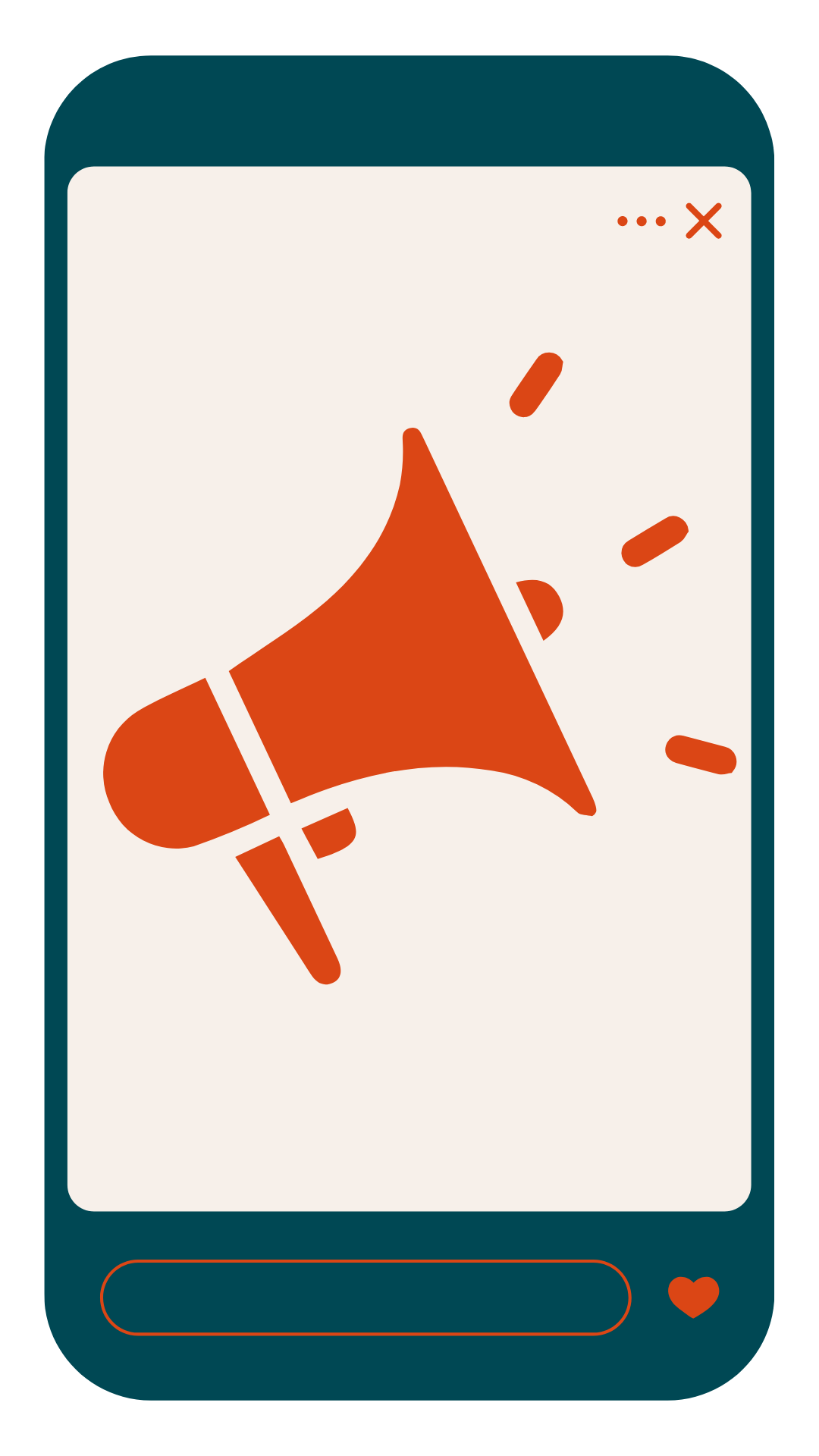
#1. Build a social media presence
Building a strong social presence as a podcaster is crucial for fostering community engagement and expanding your audience reach. Social platforms serve as dynamic spaces for connecting with listeners, sharing content updates, and creating a sense of belonging among your audience.
Social media also allows for valuable feedback from listeners, collaboration opportunities with other creators, and the chance to stay attuned to audience preferences. Posting new episodes to your platforms ia a powerful tool for promoting podcast episodes, reaching new demographics, and establishing your brand within the competitive podcasting landscape.
Overall, investing in a social presence as a podcaster is instrumental in building a loyal following and sustaining long-term success.

#2. Create a community
Creating a vibrant podcast community is essential for fostering a loyal and engaged audience. Here are some key strategies to build a strong community as a podcaster:
- Interactive Content: Encourage discussions by posing questions or seeking feedback from your audience during episodes.
- Online Forums: Establish a dedicated forum or online community where listeners can connect, share thoughts, and engage with each other.
- Live Events: Host live Q&A sessions, virtual meetups, or webinars to deepen the connection with your audience.
- Exclusive Content: Offer premium or exclusive content to community members, creating a sense of belonging and appreciation.
- Listener Spotlights: Showcase listener contributions or stories in your episodes to highlight and celebrate your community members.
By implementing these strategies, you can cultivate a sense of community around your podcast, fostering meaningful connections among your listeners.

#3. Recycle your content
Recycling content as a podcaster is highly beneficial as it ensures a consistent presence, expands audience reach by reintroducing popular episodes to new listeners, and optimizes existing material to stay relevant. This strategy not only saves time and resources but also maximizes the value of your content, fostering sustained engagement and broadening the impact of your podcast.
Examples:
- Blog Posts: Transform podcast episodes into written blog posts, providing an alternative format for consumption and catering to audiences who prefer reading over listening.
- E-books or PDF Guides: Compile related podcast episodes into an e-book or downloadable PDF guide, offering an in-depth resource that audiences can reference and share.
- Social Media Graphics: Create visually engaging graphics or infographics summarizing key points from your episodes, making the content shareable on platforms like Instagram, Twitter, or Pinterest and reaching a wider audience.

#4. Cross-promotion: Conduct podcast interviews to expand your reach
Cross-promotion is a potent tool for podcasters, leveraging collaborative efforts to expand audience reach and foster community engagement. By partnering with other podcasters or content creators in your niche, you can tap into each other's audiences and create a mutually beneficial relationship. Examples of effective cross-promotion strategies include:
- Guest Exchanges: Feature each other as guests on your respective podcasts, exposing your audience to new voices and perspectives.
- Promo Swaps: Exchange promotional clips or shout-outs in your episodes, endorsing each other's podcasts to encourage listeners to explore additional content.
- Collaborative Episodes: Co-host episodes or collaborate on special projects, combining your unique styles and expertise to create compelling content that appeals to both audiences.
- Joint Giveaways: Organize joint giveaways or contests, encouraging listeners to engage with both podcasts and facilitating cross-promotion through shared promotional efforts.
#5. Take advantage of email marketing
Email marketing is a powerful tool for podcasters, offering direct communication with your audience and enhancing engagement. Once you get your email list going (keep reading to learn more about this), you can regularly reach out to listeners with bonus content, exclusive news, promotions, etc.
Having an email newsletter helps with the following:
- Audience Retention: Build a dedicated subscriber base, keeping your audience informed about new episodes and updates directly in their inbox.
- Promotional Outreach: Use email campaigns to promote exclusive content, merchandise, or special events related to your podcast.
- Targeted Communication: Segment your email list based on listener preferences, allowing for personalized messages and targeted promotions to specific audience segments.
More powerful ways to promote your podcast
Want to really beef up your marketing strategy? These additional strategies can help take your promotion to the next level.

Create a lead generation PDF to grow your email list
Create a compelling lead magnet for your podcast listeners to capture emails and build a loyal audience. But how do you do it?
Develop an exclusive piece of content, like an e-book, PDF guide, or checklist, that aligns with your podcast's theme and provides unique insights or actionable tips.
Create a clear call to action (CTA) where you make listeners aware of the piece of content and how they can download it. You can do this during your podcast episodes by encouraging listeners to visit a dedicated landing page to download the resource. You can also include the link in your Instagram bio.
Note: In order to get email addresses in exchange for the PDF, you'll need a landing page with this capability. You can get one for a reasonable price with platforms like Unbounce, Leadpages, or MailChimp (and also use them as your email service)

Automate your e-mail list
Once you get your list going, you can automate it to streamline communication and nurture relationships with your audience.
By implementing automation tools, you can schedule and personalize emails based on listener behavior, helping you target groups of people who fall into different categories. This not only saves time but also allows for targeted engagement, such as sending welcome emails to new subscribers, delivering exclusive content, and maintaining consistent communication without a lot of manual effort.

Create & share audiograms of podcast episodes
Want to take your podcast social content up a notch? Use a service like Headliner to create audiograms of your episodes. These bite-sized previews capture attention and entice potential listeners to click on the content. The visual appeal of audiograms also caters to audiences who prefer visual content, expanding your reach beyond traditional podcast platforms.
Congratulations! You've completed How To Start a Podcast ✅
How To Start a Podcast: The Definitive Guide
- Part 1: Create a Captivating Podcast Concept
- Part 2: Make Your Editorial Calendar
- Part 3: Choose the Right Podcast Equipment for You
- Part 4: Brand Your Content: Find the perfect title, music, and artwork
- Part 5: Prepare the Perfect Podcast Recording Studio
- Part 6: Record Your First Episode: Scripting, style, and storytelling
- Part 7: Streamline Your Recording & Editing Workflow
- Part 8: Choose a Podcast Hosting Service: Tips for selection and setup
- Part 9: Maximize your Podcast Reach: Publish to Apple Podcasts, Spotify, Amazon, and other platforms
- Part 10: Learn Powerful Podcast Promotion Strategies
A clear and bold heading
A more subdued subheading
Start your podcast today with Podigee
.png?width=2000&height=1000&name=Design%20ohne%20Titel%20(1).png)
- Publish your podcast in just a few clicks: on Spotify, Apple Podcasts, Youtube and everywhere else where podcasts are available.
- Unlimited storage for your podcasts, secure and privacy-compliant, detailed playback analytics.
- Outstanding support at every step of your podcast journey, right from the start.
